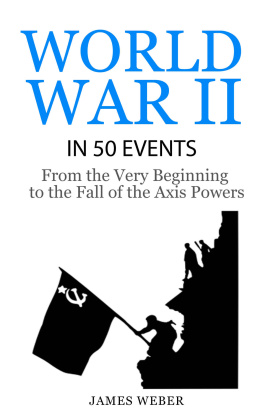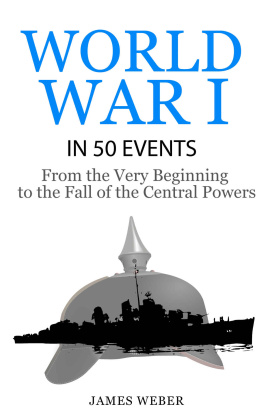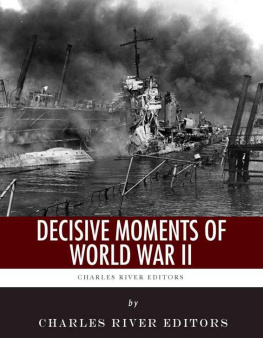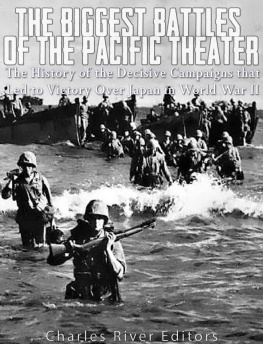Copyright 2015
All rights reserved. This book or any portion thereof
may not be reproduced or used in any manner whatsoever
without the express written permission of the publisher
except for the use of brief quotations in a book review.
About the Author:
James Weber is an author and journalist. He has a passion for literature and loves writing about social sciences, focusing on history, economics and politics. His hobbies include rowing, hiking and any other outdoor activity. James is married and has two kids.
Other Books in the
History in 50 Events Series





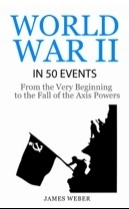
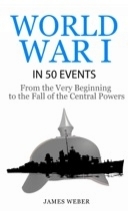
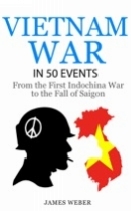




Click on the image to go to the book page
Even more books by the Author:
The Biggest Political Scandals: The Most Famous Cases of Sex, Money and Drugs in Politics
The 10 Most Successful Internet Companies:
Their Success Stories and Secrets
Economics: Economics Explained in 8 Rules
Content
50) September 2, 1945 - Japan Surrenders
Introduction
World War II was the bloodiest armed conflict in history. With over sixty million military and civilian casualties, it marked the darkest part of the last century. Even today, where most eyewitnesses have already passed away, we can still see the impact the war had on our lives. Today, all of Western Europe consists of democratic countries that have maintained peace with each other throughout the last fifty years. Had the Axis powers won the war, this would certainly not be the case.
This book is meant to help you understand why this war began and how it was fought, and ultimately won, by the Allies. You will see while reading this book that Germany never really had great chances of beating the Allies. Once Hitler decided to invade the Soviet Union and start a two-front war, his Third Reich was doomed. Movies and other media sometimes add to the mystification of the Nazi military, but it should have been clear from the beginning that even Blitzkrieg tactics and Nazi military technology could never beat the Red Army with its over thirty million soldiers.
We can only wish that such a horrible conflict will never take place again. A book such as this one might help pass on the knowledge of our parents and grandparents and teach us (and our kids) about the terrors of war.
- James Weber
Tensions in Europe
Foreshadow the War and
First Conflicts in Asia
1) September 18, 1931 - Japanese Invasion of Manchuria
What many people do not know is that World War 2 began far earlier than 1939 (when Germany invaded Poland). Many historians actually go back to 1931 and the Japanese Invasion of Manchuria, a region in northeast China. Several factors led up to the invasion. Japan was becoming more and more crowded as an island nation due to its rapidly increasing population. Manchuria offered almost 200,000 square kilometers that, once annexed, could easily accommodate the entire Japanese people. Japan also sought after the resources in Manchuria, which included minerals, forestry, and agricultural land. By 1931, Japans government had invested large sums of money into the economy of Manchuria and the South Manchuria Railway Company. To secure these investments, Japan stationed a large part of its army in the region.
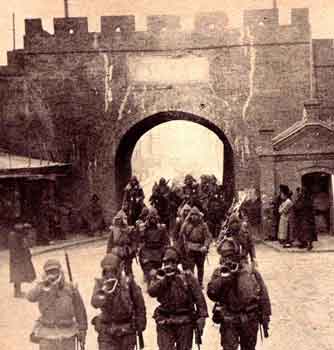
Japanese troops march into the city of Mukden on September 18, 1931
Years later, as the Great Depression hit Japan, many believed their civil government had no solutions to the problems presented by the worldwide depression possible imperialism became much more popular. Several senior army generals argued for a campaign to win new colonies especially in China in order to exploit resources and to regain the power Japanese industries once had. On September 18, 1931, Japanese soldiers invaded Manchuria after claiming that the Chinese had sabotaged the Japanese rail tracks. By February 1932, the Japan army had conquered the entire region of Manchuria and set up a Japanese-controlled state called Manchukuo, run by the former Emperor of China. The League of Nations suggested economic sanctions, which never became effective since the US (Japans main trading partner) was not a member and Britain had big interest in continuing trade with Japan.
2) January 30, 1933 - Hitler Becomes German Chancellor
January 30, 1933, marked an important turning point for Germany and, eventually, for the world. On this day, German President Paul von Hindenburg named Adolf Hitler, decorated World War I veteran and leader of the Nazi Party, the new chancellor of Germany. Hindenburg initially refused to make him chancellor, intimidated by Hitlers growing popularity and open support for drastic violence. Instead, he decided to appoint General Kurt von Schleicher, an action that led to re-elections.
During the new elections, the Nazis lost ground. Within the next days, which included complicated negotiations, the former German Chancellor Franz von Papen, supported by several businessmen, convinced Hindenburg to yield and nominate Hitler as chancellor.

Hitler after his inauguration as chancellor
At the time of Hitlers rise, Germany was a nation that had little experience with democracy. Shortly after World War I, the Weimarer Republik was founded the first German democracy. It was soon plagued by indecisive and self-serving elections and politicians, which further demoralized the peoples belief in the system. Most of the population was unemployed, without food, and desperate for relief. His plan, supported by the majority of the Germans, was to strengthen the country through a one-party state. Measures included the expansion of the police state, as well as rearming the military forces.
Next page
